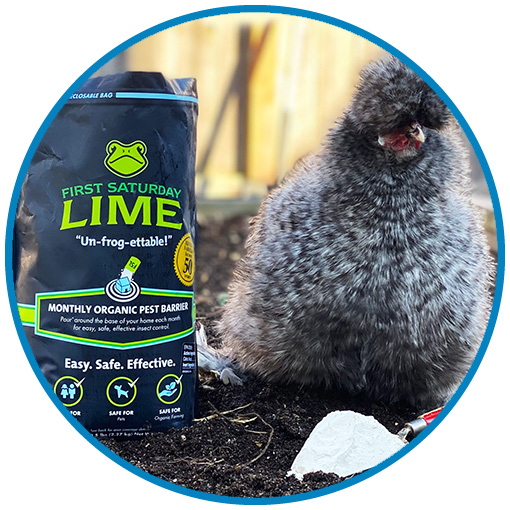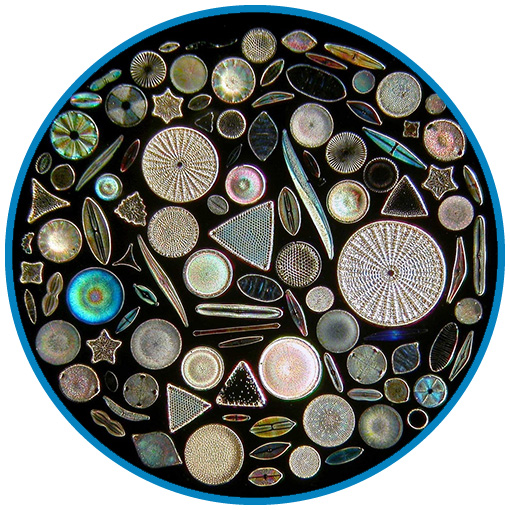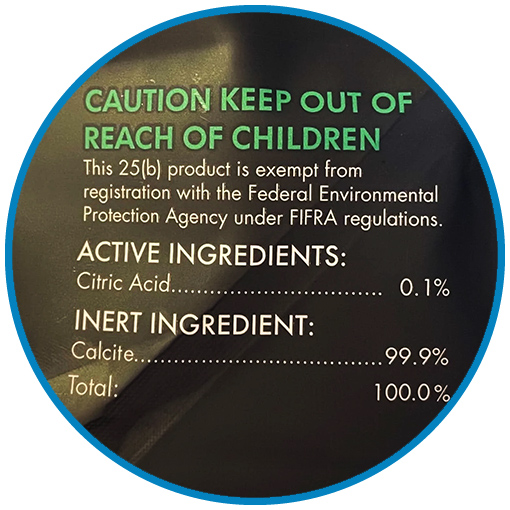
We get this question A LOT when it comes to managing parasites and pests in your coop… What’s the best way to do so? Hydrated lime? Barn lime? First Saturday lime? Diatomaceous earth? What’s the difference between all of these — and more importantly, which one is right for you and your flock! The long and short of it all (and we get no compensation or benefits from stating this), is that First Saturday Lime seems to be the most effective and safest overall. In fact so much so, that we use it with our own flock!
Now before we get into why we like FS Lime, let’s learn more about the other types of lime: Hydrated Lime, Barn Lime and Diatomaceous Earth!

Hydrated Lime
Hydrated lime is known by many names including caustic lime, builders’ lime, slack lime, cal, and pickling lime. Typically, hydrated lime is used for making mortar and concrete, and usually isn’t used in the home or farm setting.
The only home application for hydrated lime is as a soil amendment to raise the soil pH, a process called “sweetening” the soil. In most cases, garden lime is generally recommended for this. Besides this, hydrated lime is very caustic, and can easily cause severe burns to skin — and to the soft pads of chicken feet. Hydrated lime is NOT recommended for chicken coops!

Barn Lime
Barn lime goes by many names, including quarry lime, ag lime, dairy lime or garden lime. Regardless of the name, these are all calcium carbonate, or ground limestone. Unlike hydrated lime, barn lime is safer and won’t cause skin burns. Barn lime is often sold as a deodorizer and moisture control for horse stalls or as a garden soil amendment.
While barn lime is typically fairly inexpensive and may help absorb moisture and curb smells, it is very ineffective as a pest control measure. There, only FS Lime seems to work the best (and be the safest).
While barn lime is safe and organic, it contains many impurities which weaken its pest controlling ability when compared to First Saturday Lime. Barn lime *can* be used sparingly in a chicken coop, however due to its somewhat caustic nature and inability to be effective when wet, we don’t recommend it.

Diatomaceous Earth

Diatomaceous Earth (or DE) is the fossilized remains of tiny, aquatic organisms called diatoms. These remains are made of silica, and kill insects and parasites (such as ticks and mites) by cutting into their skin and absorbing the oils and fats, drying them out and killing them via dehydration.
While (food grade) Diatomaceous earth is an organic and effective pest control, the silica can be harmful to delicate lung tissue and an eye irritant, especially in chickens. Even though there have been numerous studies demonstrating that DE controls parasites such as mites, fleas and lice, there has been no scientific evidence of it being effective to control parasites internally. That said, several studies have shown that free range chickens who had DE added to their food were heavier and laid more and larger eggs containing more yolk and albumen.

First Saturday Lime
 So yeah, we’re talking about the First Saturday Lime that was on Shark Tank, where Kevin O’Leary ended up partnering with them for 25% of their company. Needless to say, it’s certainly paid off. You can find FS Lime at nearly every hardware store in the country today!
So yeah, we’re talking about the First Saturday Lime that was on Shark Tank, where Kevin O’Leary ended up partnering with them for 25% of their company. Needless to say, it’s certainly paid off. You can find FS Lime at nearly every hardware store in the country today!
So why did we choose FS Lime over Barn Lime or Diatomaceous Earth? First Saturday Lime is precipitated calcium carbonate, primarily made of calcium carbonate. First Saturday Lime is not chalk, as chalk can be a variety of materials or sources and/or particle sizes. Per the packaging, the active ingredient is Citric Acid (0.1%), and the inert ingredient is Calcite (99.9%). It is free of any toxic chemicals. This means First Saturday Lime is super strong and won’t harm people and animals. It is a safe and healthy alternative to other dangerous forms of lime.
Compared to Diatomaceous Earth, FS Lime is nearly equally as effective when used as pest control against parasites and pests alike — without any of the unsafe respiratory issues that DE may have as side effects.
Additionally, First Saturday Lime remains effective even if it gets wet. Because it is insoluble, it is effective once again after it dries out. The only downfall is that it’s more expensive than regular Barn Lime…
- Eco friendly product
- Approved for organic gardening and organic farming
- No strong scent
- Does not contain silica
- More concentrated than other types of lime
- Safe to handle
- Non-toxic
- All-natural
- Non-hazardous
- Repels slugs and snails
- Reduce algae in ponds
- Safe to handle with bare hands
- Once wet, effective again when dried out
- Approved for food handling and preparation surfaces
- Safe for horses, cats, chickens, and goats
- Generally Recognized As Safe by the FDA
- Safe for your family, gardens, ponds, pets, and animals
- Kills bugs and creates an organic pest barrier
- Prevents mosquito growth in water trough and ponds
- Prevent small hive beetles in bee yards
- Increase pH levels of soil up to 7

I live in Canada and it seems that items that are recommended, like FS Lime, can not be purchased on Amazon Canadian site. Any idea, recommendation as to where could I purchase it in Canada?
Thanks
Sorry, I’m unsure. You probably have some sort of similar substance like barn lime?
I ordered some through their website.